afterLoad (456.28KB) (532μs)
afterInitialise (1.27MB) (31.16ms)
afterRoute (870.41KB) (16.23ms)
beforeRenderComponent com_tags (21.13KB) (255μs)
afterRenderComponent com_tags (2.31MB) (103ms)
afterDispatch (65.04KB) (3.99ms)
beforeRenderRawModule mod_articles_category (READ MORE...) (373.37KB) (12.58ms)
Before Access::preloadComponents (all components) (120.7KB) (1.55ms)
After Access::preloadComponents (all components) (103.05KB) (1.48ms)
Before Access::getAssetRules (id:8 name:com_content) (840B) (20μs)
After Access::getAssetRules (id:8 name:com_content) (7.05KB) (42μs)
afterRenderRawModule mod_articles_category (READ MORE...) (5.08KB) (105ms)
beforeRenderRawModule mod_tags_popular (Search) (4.81KB) (29μs)
afterRenderRawModule mod_tags_popular (Search) (1.79KB) (64.08ms)
beforeRenderRawModule mod_custom (Remember to download Heart Healthy Seniors) (816B) (28μs)
afterRenderRawModule mod_custom (Remember to download Heart Healthy Seniors) (4.86KB) (219μs)
beforeRenderRawModule mod_custom (Get additionel and more detailed knowledge ) (752B) (13μs)
afterRenderRawModule mod_custom (Get additionel and more detailed knowledge ) (1.67KB) (28μs)
beforeRenderRawModule mod_custom (BOOST YOUR IMMUNE DEFENSE) (608B) (11μs)
afterRenderRawModule mod_custom (BOOST YOUR IMMUNE DEFENSE) (928B) (22μs)
beforeRenderRawModule mod_custom (Are you taking supplements) (736B) (9μs)
afterRenderRawModule mod_custom (Are you taking supplements) (1.03KB) (20μs)
beforeRenderRawModule mod_custom (Antiaging) (720B) (9μs)
afterRenderRawModule mod_custom (Antiaging) (1.02KB) (18μs)
beforeRenderRawModule mod_custom (Exercise) (720B) (12μs)
afterRenderRawModule mod_custom (Exercise) (1.02KB) (20μs)
beforeRenderRawModule mod_custom (Check this before you buy a Q10 product) (752B) (8μs)
afterRenderRawModule mod_custom (Check this before you buy a Q10 product) (944B) (19μs)
beforeRenderRawModule mod_custom (Chronic fatigue tied Alan to his bed but Q10 capsules saved him:) (245.53KB) (3.64ms)
afterRenderRawModule mod_custom (Chronic fatigue tied Alan to his bed but Q10 capsules saved him:) (960B) (43μs)
beforeRenderModule mod_custom (Chronic fatigue tied Alan to his bed but Q10 capsules saved him:) (768B) (5μs)
afterRenderModule mod_custom (Chronic fatigue tied Alan to his bed but Q10 capsules saved him:) (1.3KB) (57μs)
beforeRenderRawModule mod_custom (Cholesterol-lowering without side effects:) (368B) (13μs)
afterRenderRawModule mod_custom (Cholesterol-lowering without side effects:) (2.19KB) (24μs)
beforeRenderModule mod_custom (Cholesterol-lowering without side effects:) (752B) (3μs)
afterRenderModule mod_custom (Cholesterol-lowering without side effects:) (1.28KB) (30μs)
beforeRenderModule mod_articles_category (READ MORE...) (21.43KB) (2.66ms)
afterRenderModule mod_articles_category (READ MORE...) (1.25KB) (53μs)
beforeRenderModule mod_tags_popular (Search) (5.17KB) (15μs)
afterRenderModule mod_tags_popular (Search) (1.27KB) (28μs)
beforeRenderModule mod_custom (Remember to download Heart Healthy Seniors) (1.17KB) (12μs)
afterRenderModule mod_custom (Remember to download Heart Healthy Seniors) (1.3KB) (23μs)
beforeRenderModule mod_custom (Get additionel and more detailed knowledge ) (368B) (10μs)
afterRenderModule mod_custom (Get additionel and more detailed knowledge ) (1.3KB) (22μs)
beforeRenderModule mod_custom (BOOST YOUR IMMUNE DEFENSE) (224B) (9μs)
afterRenderModule mod_custom (BOOST YOUR IMMUNE DEFENSE) (1.28KB) (20μs)
beforeRenderModule mod_custom (Are you taking supplements) (352B) (9μs)
afterRenderModule mod_custom (Are you taking supplements) (1.28KB) (21μs)
beforeRenderModule mod_custom (Antiaging) (336B) (9μs)
afterRenderModule mod_custom (Antiaging) (1.27KB) (21μs)
beforeRenderModule mod_custom (Exercise) (336B) (9μs)
afterRenderModule mod_custom (Exercise) (1.25KB) (21μs)
beforeRenderModule mod_custom (Check this before you buy a Q10 product) (352B) (8μs)
afterRenderModule mod_custom (Check this before you buy a Q10 product) (1.28KB) (21μs)
beforeRenderRawModule mod_menu (Main menu-US) (20.94KB) (1.55ms)
afterRenderRawModule mod_menu (Main menu-US) (158.16KB) (1.45ms)
beforeRenderModule mod_menu (Main menu-US) (720B) (4μs)
afterRenderModule mod_menu (Main menu-US) (4.36KB) (52μs)
beforeRenderRawModule mod_languages (Sprogskift) (3.44KB) (16μs)
afterRenderRawModule mod_languages (Sprogskift) (26.82KB) (2.53ms)
beforeRenderModule mod_languages (Sprogskift) (720B) (6μs)
afterRenderModule mod_languages (Sprogskift) (5.31KB) (20μs)
beforeRenderRawModule mod_finder () (6.34KB) (12μs)
afterRenderRawModule mod_finder () (150.16KB) (4.81ms)
beforeRenderModule mod_finder () (704B) (5μs)
afterRenderModule mod_finder () (5.79KB) (34μs)
beforeRenderRawModule mod_custom () (6.62KB) (139μs)
afterRenderRawModule mod_custom () (22.67KB) (2.72ms)
beforeRenderModule mod_custom () (704B) (6μs)
afterRenderModule mod_custom () (1.23KB) (51μs)
beforeRenderRawModule mod_menu (Main menu-US) (5.07KB) (113μs)
afterRenderRawModule mod_menu (Main menu-US) (5.8KB) (626μs)
beforeRenderModule mod_menu (Main menu-US) (720B) (3μs)
afterRenderModule mod_menu (Main menu-US) (1.25KB) (42μs)
beforeRenderRawModule mod_languages (Sprogskift Mobil) (912B) (17μs)
afterRenderRawModule mod_languages (Sprogskift Mobil) (3.89KB) (1.67ms)
beforeRenderModule mod_languages (Sprogskift Mobil) (720B) (5μs)
afterRenderModule mod_languages (Sprogskift Mobil) (1.27KB) (34μs)
beforeRenderRawModule mod_finder () (2.3KB) (10μs)
afterRenderRawModule mod_finder () (6.29KB) (1.71ms)
beforeRenderModule mod_finder () (704B) (5μs)
afterRenderModule mod_finder () (1.23KB) (48μs)
beforeRenderRawModule mod_custom () (8.66KB) (172μs)
afterRenderRawModule mod_custom () (904B) (134μs)
beforeRenderModule mod_custom () (704B) (3μs)
afterRenderModule mod_custom () (2.43KB) (24μs)
beforeRenderRawModule mod_custom () (688B) (77μs)
afterRenderRawModule mod_custom () (896B) (93μs)
beforeRenderModule mod_custom () (704B) (3μs)
afterRenderModule mod_custom () (2.71KB) (20μs)
afterRender (374.96KB) (10.68ms)
| 1 x afterRenderRawModule mod_articles_category (READ MORE...) (5.08KB) (27.82%) | 104.76ms |
| 1 x afterRenderComponent com_tags (2.31MB) (27.42%) | 103.23ms |
| 1 x afterRenderRawModule mod_tags_popular (Search) (1.79KB) (17.02%) | 64.08ms |
| 1 x afterInitialise (1.27MB) (8.28%) | 31.16ms |
| 1 x afterRoute (870.41KB) (4.31%) | 16.23ms |
| 1 x beforeRenderRawModule mod_articles_category (READ MORE...) (373.37KB) (3.34%) | 12.58ms |
| 1 x afterRender (374.96KB) (2.84%) | 10.68ms |
| 1 x afterRenderRawModule mod_finder () (150.16KB) (1.28%) | 4.81ms |
| 1 x afterDispatch (65.04KB) (1.06%) | 3.99ms |
| 1 x beforeRenderRawModule mod_custom (Chronic fatigue tied Alan to his bed but Q10 capsules saved him:) (245.53KB) (0.97%) | 3.64ms |
| 1 x afterRenderRawModule mod_custom () (22.67KB) (0.72%) | 2.72ms |
| 1 x beforeRenderModule mod_articles_category (READ MORE...) (21.43KB) (0.71%) | 2.66ms |
| 1 x afterRenderRawModule mod_languages (Sprogskift) (26.82KB) (0.67%) | 2.53ms |
| 1 x afterRenderRawModule mod_finder () (6.29KB) (0.46%) | 1.71ms |
| 1 x afterRenderRawModule mod_languages (Sprogskift Mobil) (3.89KB) (0.44%) | 1.67ms |
| 1 x beforeRenderRawModule mod_menu (Main menu-US) (20.94KB) (0.41%) | 1.55ms |
| 1 x Before Access::preloadComponents (all components) (120.7KB) (0.41%) | 1.55ms |
| 1 x After Access::preloadComponents (all components) (103.05KB) (0.39%) | 1.48ms |
| 1 x afterRenderRawModule mod_menu (Main menu-US) (158.16KB) (0.38%) | 1.45ms |
| 1 x afterRenderRawModule mod_menu (Main menu-US) (5.8KB) (0.17%) | 626μs |
| 1 x afterLoad (456.28KB) (0.14%) | 532μs |
| 1 x beforeRenderComponent com_tags (21.13KB) (0.07%) | 255μs |
| 1 x afterRenderRawModule mod_custom (Remember to download Heart Healthy Seniors) (4.86KB) (0.06%) | 219μs |
| 1 x beforeRenderRawModule mod_custom () (8.66KB) (0.05%) | 172μs |
| 1 x beforeRenderRawModule mod_custom () (6.62KB) (0.04%) | 139μs |
| 1 x afterRenderRawModule mod_custom () (904B) (0.04%) | 134μs |
| 1 x beforeRenderRawModule mod_menu (Main menu-US) (5.07KB) (0.03%) | 113μs |
| 1 x afterRenderRawModule mod_custom () (896B) (0.02%) | 93μs |
| 1 x beforeRenderRawModule mod_custom () (688B) (0.02%) | 77μs |
| 1 x afterRenderModule mod_custom (Chronic fatigue tied Alan to his bed but Q10 capsules saved him:) (1.3KB) (0.02%) | 57μs |
| 1 x afterRenderModule mod_articles_category (READ MORE...) (1.25KB) (0.01%) | 53μs |
| 1 x afterRenderModule mod_menu (Main menu-US) (4.36KB) (0.01%) | 52μs |
| 1 x afterRenderModule mod_custom () (1.23KB) (0.01%) | 51μs |
| 1 x afterRenderModule mod_finder () (1.23KB) (0.01%) | 48μs |
| 1 x afterRenderRawModule mod_custom (Chronic fatigue tied Alan to his bed but Q10 capsules saved him:) (960B) (0.01%) | 43μs |
| 1 x After Access::getAssetRules (id:8 name:com_content) (7.05KB) (0.01%) | 42μs |
| 1 x afterRenderModule mod_menu (Main menu-US) (1.25KB) (0.01%) | 42μs |
| 1 x afterRenderModule mod_finder () (5.79KB) (0.01%) | 34μs |
| 1 x afterRenderModule mod_languages (Sprogskift Mobil) (1.27KB) (0.01%) | 34μs |
| 1 x afterRenderModule mod_custom (Cholesterol-lowering without side effects:) (1.28KB) (0.01%) | 30μs |
| 1 x beforeRenderRawModule mod_tags_popular (Search) (4.81KB) (0.01%) | 29μs |
| 1 x afterRenderRawModule mod_custom (Get additionel and more detailed knowledge ) (1.67KB) (0.01%) | 28μs |
| 1 x beforeRenderRawModule mod_custom (Remember to download Heart Healthy Seniors) (816B) (0.01%) | 28μs |
| 1 x afterRenderModule mod_tags_popular (Search) (1.27KB) (0.01%) | 28μs |
| 1 x afterRenderRawModule mod_custom (Cholesterol-lowering without side effects:) (2.19KB) (0.01%) | 24μs |
| 1 x afterRenderModule mod_custom () (2.43KB) (0.01%) | 24μs |
| 1 x afterRenderModule mod_custom (Remember to download Heart Healthy Seniors) (1.3KB) (0.01%) | 23μs |
| 1 x afterRenderRawModule mod_custom (BOOST YOUR IMMUNE DEFENSE) (928B) (0.01%) | 22μs |
| 1 x afterRenderModule mod_custom (Get additionel and more detailed knowledge ) (1.3KB) (0.01%) | 22μs |
| 1 x afterRenderModule mod_custom (Are you taking supplements) (1.28KB) (0.01%) | 21μs |
| 1 x afterRenderModule mod_custom (Antiaging) (1.27KB) (0.01%) | 21μs |
| 1 x afterRenderModule mod_custom (Exercise) (1.25KB) (0.01%) | 21μs |
| 1 x afterRenderModule mod_custom (Check this before you buy a Q10 product) (1.28KB) (0.01%) | 21μs |
| 1 x Before Access::getAssetRules (id:8 name:com_content) (840B) (0.01%) | 20μs |
| 1 x afterRenderRawModule mod_custom (Are you taking supplements) (1.03KB) (0.01%) | 20μs |
| 1 x afterRenderRawModule mod_custom (Exercise) (1.02KB) (0.01%) | 20μs |
| 1 x afterRenderModule mod_custom (BOOST YOUR IMMUNE DEFENSE) (1.28KB) (0.01%) | 20μs |
| 1 x afterRenderModule mod_custom () (2.71KB) (0.01%) | 20μs |
| 1 x afterRenderModule mod_languages (Sprogskift) (5.31KB) (0.01%) | 20μs |
| 1 x afterRenderRawModule mod_custom (Check this before you buy a Q10 product) (944B) (0.01%) | 19μs |
| 1 x afterRenderRawModule mod_custom (Antiaging) (1.02KB) (0%) | 18μs |
| 1 x beforeRenderRawModule mod_languages (Sprogskift Mobil) (912B) (0%) | 17μs |
| 1 x beforeRenderRawModule mod_languages (Sprogskift) (3.44KB) (0%) | 16μs |
| 1 x beforeRenderModule mod_tags_popular (Search) (5.17KB) (0%) | 15μs |
| 1 x beforeRenderRawModule mod_custom (Cholesterol-lowering without side effects:) (368B) (0%) | 13μs |
| 1 x beforeRenderRawModule mod_custom (Get additionel and more detailed knowledge ) (752B) (0%) | 13μs |
| 1 x beforeRenderRawModule mod_finder () (6.34KB) (0%) | 12μs |
| 1 x beforeRenderRawModule mod_custom (Exercise) (720B) (0%) | 12μs |
| 1 x beforeRenderModule mod_custom (Remember to download Heart Healthy Seniors) (1.17KB) (0%) | 12μs |
| 3 x beforeRenderModule mod_custom () (704B) (0%) | 12μs |
| 1 x beforeRenderRawModule mod_custom (BOOST YOUR IMMUNE DEFENSE) (608B) (0%) | 11μs |
| 1 x beforeRenderModule mod_custom (Get additionel and more detailed knowledge ) (368B) (0%) | 10μs |
| 2 x beforeRenderModule mod_finder () (704B) (0%) | 10μs |
| 1 x beforeRenderRawModule mod_finder () (2.3KB) (0%) | 10μs |
| 1 x beforeRenderRawModule mod_custom (Are you taking supplements) (736B) (0%) | 9μs |
| 1 x beforeRenderRawModule mod_custom (Antiaging) (720B) (0%) | 9μs |
| 1 x beforeRenderModule mod_custom (BOOST YOUR IMMUNE DEFENSE) (224B) (0%) | 9μs |
| 1 x beforeRenderModule mod_custom (Antiaging) (336B) (0%) | 9μs |
| 1 x beforeRenderModule mod_custom (Exercise) (336B) (0%) | 9μs |
| 1 x beforeRenderModule mod_custom (Are you taking supplements) (352B) (0%) | 9μs |
| 1 x beforeRenderRawModule mod_custom (Check this before you buy a Q10 product) (752B) (0%) | 8μs |
| 1 x beforeRenderModule mod_custom (Check this before you buy a Q10 product) (352B) (0%) | 8μs |
| 2 x beforeRenderModule mod_menu (Main menu-US) (720B) (0%) | 7μs |
| 1 x beforeRenderModule mod_languages (Sprogskift) (720B) (0%) | 6μs |
| 1 x beforeRenderModule mod_custom (Chronic fatigue tied Alan to his bed but Q10 capsules saved him:) (768B) (0%) | 5μs |
| 1 x beforeRenderModule mod_languages (Sprogskift Mobil) (720B) (0%) | 5μs |
| 1 x beforeRenderModule mod_custom (Cholesterol-lowering without side effects:) (752B) (0%) | 3μs |
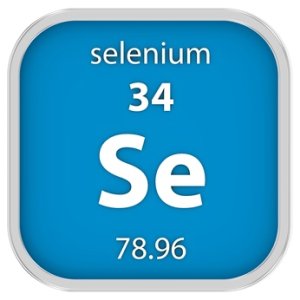 Even if you eat a healthy and balanced diet, it can be difficult to get enough selenium because of climate changes and nutrient depletion of the soil, especially in Europe. This was shown in a study conducted by Swiss scientists. Selenium is very important for the immune system, but how much do we need to be optimally protected against infections? There also appears to be a connection between widespread selenium deficiency and the increased rate of cancer.
Even if you eat a healthy and balanced diet, it can be difficult to get enough selenium because of climate changes and nutrient depletion of the soil, especially in Europe. This was shown in a study conducted by Swiss scientists. Selenium is very important for the immune system, but how much do we need to be optimally protected against infections? There also appears to be a connection between widespread selenium deficiency and the increased rate of cancer.







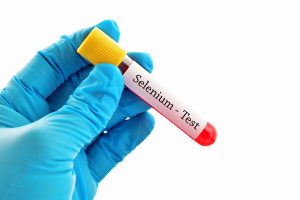 It is estimated that one billion people worldwide lack selenium. This has fatal consequences for public health because it increases the risk of virus infections, thyroid disorders, cardiovascular diseases, cancer, neurological disorders, and involuntary infertility. Adding to that problem is the fact that mercury, a known environmental toxin, throws a wrench into selenium’s different functions. In the following, we have compiled a long list of studies that look closer at the consequences of selenium deficiency and the advantage of optimizing the body’s selenium status with help from supplements.
It is estimated that one billion people worldwide lack selenium. This has fatal consequences for public health because it increases the risk of virus infections, thyroid disorders, cardiovascular diseases, cancer, neurological disorders, and involuntary infertility. Adding to that problem is the fact that mercury, a known environmental toxin, throws a wrench into selenium’s different functions. In the following, we have compiled a long list of studies that look closer at the consequences of selenium deficiency and the advantage of optimizing the body’s selenium status with help from supplements.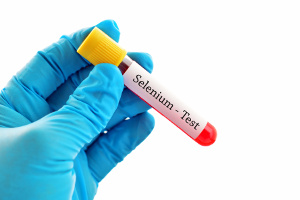
 We all need loads of energy to help us through the day feeling on top of the world. Needless to say, this requires stable blood sugar levels, daylight, exercise, and a good night’s sleep. But what are the energy-providing substances in our food? And why are Q10 and particular vitamins and minerals so essential for our energy metabolism and our physical and mental well-being? An article recently published in Medical News Today looks at this and explains that being deficient of a single nutrient can affect our metabolism, energy levels, and weight regulation. Luckily, this can be compensated for so we get the necessary energy boost.
We all need loads of energy to help us through the day feeling on top of the world. Needless to say, this requires stable blood sugar levels, daylight, exercise, and a good night’s sleep. But what are the energy-providing substances in our food? And why are Q10 and particular vitamins and minerals so essential for our energy metabolism and our physical and mental well-being? An article recently published in Medical News Today looks at this and explains that being deficient of a single nutrient can affect our metabolism, energy levels, and weight regulation. Luckily, this can be compensated for so we get the necessary energy boost.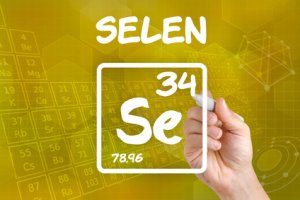 Climate changes and soil depletion increase the risk of selenium deficiency, especially in Europe as shown by Swiss scientists. Selenium is an essential nutrient, and existing studies clearly show that low selenium intake increases the risk of cancer, metabolic disorders, impaired immunity, poor sperm quality, and atherosclerosis. Selenium deficiencies are therefore to be taken seriously and should be prevented one way or another. A good way to get enough of the nutrient is by taking a high-quality selenium supplement.
Climate changes and soil depletion increase the risk of selenium deficiency, especially in Europe as shown by Swiss scientists. Selenium is an essential nutrient, and existing studies clearly show that low selenium intake increases the risk of cancer, metabolic disorders, impaired immunity, poor sperm quality, and atherosclerosis. Selenium deficiencies are therefore to be taken seriously and should be prevented one way or another. A good way to get enough of the nutrient is by taking a high-quality selenium supplement.
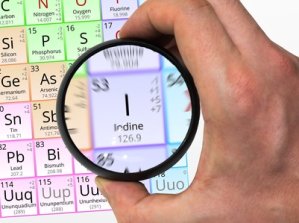 It appears so. Iodine is an essential trace element that is vital for metabolism and estrogen balance. Iodine also helps the body get rid of environmental toxins. In fact, exposure to these toxins increases our need for iodine, and many experts believe that the official recommendations for iodine are too low.
It appears so. Iodine is an essential trace element that is vital for metabolism and estrogen balance. Iodine also helps the body get rid of environmental toxins. In fact, exposure to these toxins increases our need for iodine, and many experts believe that the official recommendations for iodine are too low.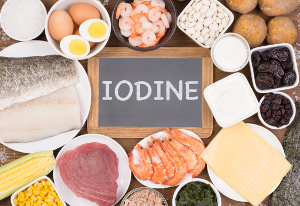 The Russian invasion of Ukraine has increased the fear of nuclear warfare or radioactive leaks from local nuclear power plants. For that reason, many people have purchased iodine tablets to protect themselves from radioactive contamination. Being relatively close to a radioactive leak creates a sudden need for very large intake of iodine. It is important to realize, however, that the thyroid gland can only store iodine for a limited period of time and it can be dangerous to take extreme doses of iodine. Therefore, it makes no sense to take mega-doses as a preventive measure. On the other hand, it looks as if iodine deficiencies are rather common. Furthermore, we do need a certain amount of iodine to support the thyroid function, estrogen balance, and a number of other things. The question is how much iodine do we need on a day-to-day basis and how much do we need in the case of being exposed to radioactive radiation?
The Russian invasion of Ukraine has increased the fear of nuclear warfare or radioactive leaks from local nuclear power plants. For that reason, many people have purchased iodine tablets to protect themselves from radioactive contamination. Being relatively close to a radioactive leak creates a sudden need for very large intake of iodine. It is important to realize, however, that the thyroid gland can only store iodine for a limited period of time and it can be dangerous to take extreme doses of iodine. Therefore, it makes no sense to take mega-doses as a preventive measure. On the other hand, it looks as if iodine deficiencies are rather common. Furthermore, we do need a certain amount of iodine to support the thyroid function, estrogen balance, and a number of other things. The question is how much iodine do we need on a day-to-day basis and how much do we need in the case of being exposed to radioactive radiation?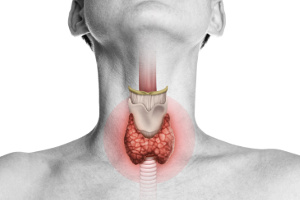
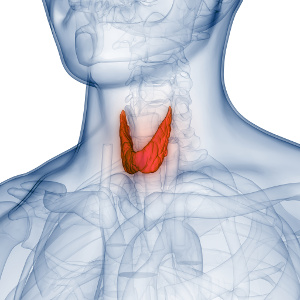 Hashimoto’s thyroiditis is the most common underlying cause of hypothyroidism. It is characterized by extreme fatigue, weight gain, and a number of other symptoms. Hashimoto’s is an autoimmune condition where antibodies attack the thyroid gland. Many people who get treatment for their disease don’t improve, on the contrary. According to a meta-analysis published in Medicine, however, selenium supplementation appears to be able to reduce the autoimmune reactions and the body’s production of the different antibodies. Selenium helps control the thyroid function but also serves as an antioxidant that protects the thyroid gland against oxidative stress.
Hashimoto’s thyroiditis is the most common underlying cause of hypothyroidism. It is characterized by extreme fatigue, weight gain, and a number of other symptoms. Hashimoto’s is an autoimmune condition where antibodies attack the thyroid gland. Many people who get treatment for their disease don’t improve, on the contrary. According to a meta-analysis published in Medicine, however, selenium supplementation appears to be able to reduce the autoimmune reactions and the body’s production of the different antibodies. Selenium helps control the thyroid function but also serves as an antioxidant that protects the thyroid gland against oxidative stress.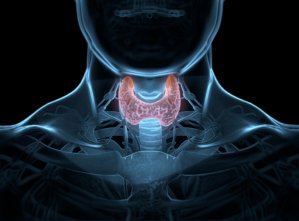
 Selenium supports a host of different metabolic processes and serves as an antioxidant that protects our cells. According to recent studies, selenium also has anti-ageing properties that protect us against cardiovascular disease, cancer, dementia, and other age-related diseases. According to a review article published in Medical News Today, selenium also helps against impaired immunity and counteracts chronic inflammation, which is typically seen in connection with ageing processes. A Swedish study of healthy seniors has even showed that supplementation with selenium and Q10 has a positive effect on heart function, quality of life, and life expectancy.
Selenium supports a host of different metabolic processes and serves as an antioxidant that protects our cells. According to recent studies, selenium also has anti-ageing properties that protect us against cardiovascular disease, cancer, dementia, and other age-related diseases. According to a review article published in Medical News Today, selenium also helps against impaired immunity and counteracts chronic inflammation, which is typically seen in connection with ageing processes. A Swedish study of healthy seniors has even showed that supplementation with selenium and Q10 has a positive effect on heart function, quality of life, and life expectancy.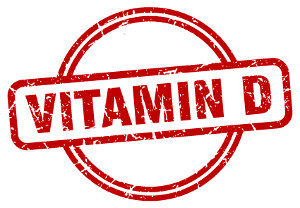 Hashimoto’s disease (Hashimoto’s thyroiditis) is an overlooked scourge that leads to hypothyroidism and is particularly widespread among women. Postpartum thyroiditis that also slows down your metabolism follows in the wake of pregnancy. Graves’ disease where the metabolism speeds up (hyperthyroidism) is less common. These three thyroid disorders belong to the group of autoimmune disorders where the immune defense attacks the body’s tissues, and it appears that lack of vitamin D increases the risk, as it controls the immune defense in a number of ways. According to a new review article that is published in Nutrients, taking larger quantities of vitamin D may have a positive impact on these thyroid disorders.
Hashimoto’s disease (Hashimoto’s thyroiditis) is an overlooked scourge that leads to hypothyroidism and is particularly widespread among women. Postpartum thyroiditis that also slows down your metabolism follows in the wake of pregnancy. Graves’ disease where the metabolism speeds up (hyperthyroidism) is less common. These three thyroid disorders belong to the group of autoimmune disorders where the immune defense attacks the body’s tissues, and it appears that lack of vitamin D increases the risk, as it controls the immune defense in a number of ways. According to a new review article that is published in Nutrients, taking larger quantities of vitamin D may have a positive impact on these thyroid disorders.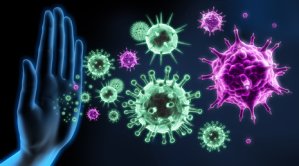 The immune system needs selenium every single day. Lack of this nutrient increases your risk of virus infections, inflammation, and cancer. It is a huge problem that many of us get too little selenium because of factors such as nutrient-depleted soil and unhealthy eating habits
The immune system needs selenium every single day. Lack of this nutrient increases your risk of virus infections, inflammation, and cancer. It is a huge problem that many of us get too little selenium because of factors such as nutrient-depleted soil and unhealthy eating habits Selenium is a trace element with a number of essential functions. An estimated one billion people worldwide get too little dietary selenium. The problem is mainly a result of nutrient-depleted farmland. Moreover, blood levels of selenium drop drastically in connection with COVID-19 infections, serious illness, and pregnancy because the body has an increased need for the nutrient. Altogether, selenium deficiency increases the risk of complicated COVID-19 infections, autoimmune diseases such as rheumatoid arthritis, Hashimoto’s thyroiditis, preterm delivery, and miscarriage. Supplementation may help optimize blood levels of selenium, which can be relevant for preventing and treating a number of common diseases, according to an article that is published in International Journal of Medical Sciences.
Selenium is a trace element with a number of essential functions. An estimated one billion people worldwide get too little dietary selenium. The problem is mainly a result of nutrient-depleted farmland. Moreover, blood levels of selenium drop drastically in connection with COVID-19 infections, serious illness, and pregnancy because the body has an increased need for the nutrient. Altogether, selenium deficiency increases the risk of complicated COVID-19 infections, autoimmune diseases such as rheumatoid arthritis, Hashimoto’s thyroiditis, preterm delivery, and miscarriage. Supplementation may help optimize blood levels of selenium, which can be relevant for preventing and treating a number of common diseases, according to an article that is published in International Journal of Medical Sciences. Lack of selenium, an essential trace element, may cause thyroid disorders, cardiovascular disease, virus infections, AIDS, infertility, neurological disturbances, and cancer. An estimated one billion people worldwide are selenium-deficient. This is mainly a result of nutrient-depleted soil, which is a real problem in places like Europe. For decades, scientists have been warning about this problem, and a lot suggests that we need more than the officially recommended intake to protect ourselves effectively against disease, according to a review article published in StatPearls.
Lack of selenium, an essential trace element, may cause thyroid disorders, cardiovascular disease, virus infections, AIDS, infertility, neurological disturbances, and cancer. An estimated one billion people worldwide are selenium-deficient. This is mainly a result of nutrient-depleted soil, which is a real problem in places like Europe. For decades, scientists have been warning about this problem, and a lot suggests that we need more than the officially recommended intake to protect ourselves effectively against disease, according to a review article published in StatPearls. Selenium is crucial for your thyroid function, immune system, cardiovascular system, and even for preventing cancer. Fish and shellfish are among the best selenium sources, but even 200 grams of fish and shellfish five days a week won’t do the trick, according to a Danish selenium study. What makes it even more difficult to obtain optimal amounts of this nutrient is that the agricultural soil in large parts of Europe is stripped of vital nutrients like selenium. Margaret P. Rayman, one of Europe’s leading experts on selenium, says that there is a direct link between the decreasing selenium intake and the increasing rate of cancers, rheumatism, infertility, and numerous other health problems. The question is, how do we humans get enough selenium?
Selenium is crucial for your thyroid function, immune system, cardiovascular system, and even for preventing cancer. Fish and shellfish are among the best selenium sources, but even 200 grams of fish and shellfish five days a week won’t do the trick, according to a Danish selenium study. What makes it even more difficult to obtain optimal amounts of this nutrient is that the agricultural soil in large parts of Europe is stripped of vital nutrients like selenium. Margaret P. Rayman, one of Europe’s leading experts on selenium, says that there is a direct link between the decreasing selenium intake and the increasing rate of cancers, rheumatism, infertility, and numerous other health problems. The question is, how do we humans get enough selenium?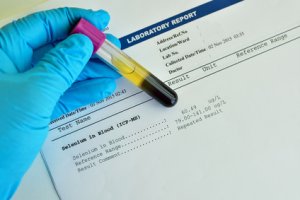 We all get exposed to mercury, a neurotoxin that is found to a great extent in nature and in our environment. According to an EU report, mercury is a large economic burden to society because of the costs related to lowered IQ levels. For that reason alone, we should aim to limit our exposure to mercury and also take a closer look at how selenium protects against the harmful heavy metal – provided our selenium levels are adequately high.
We all get exposed to mercury, a neurotoxin that is found to a great extent in nature and in our environment. According to an EU report, mercury is a large economic burden to society because of the costs related to lowered IQ levels. For that reason alone, we should aim to limit our exposure to mercury and also take a closer look at how selenium protects against the harmful heavy metal – provided our selenium levels are adequately high.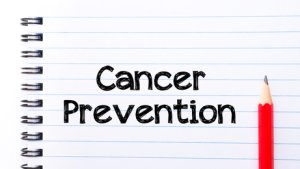 All our cells contain different selenium compounds that support a number of vital functions, and which have several cancer-fighting mechanisms. As an antioxidant, selenium prevents iron from developing some of the most harmful free radicals that can damage cellular DNA and lead to uncontrolled cell division. This is why a selenium deficiency combined with excess iron is a lethal cocktail. Although iron is essential, it is vital that we do not get too much. It is also important to get plenty of selenium from food and/or supplements and in a form that the body can absorb and utilize in each and every cell in order to be properly protected against cancerous substances.
All our cells contain different selenium compounds that support a number of vital functions, and which have several cancer-fighting mechanisms. As an antioxidant, selenium prevents iron from developing some of the most harmful free radicals that can damage cellular DNA and lead to uncontrolled cell division. This is why a selenium deficiency combined with excess iron is a lethal cocktail. Although iron is essential, it is vital that we do not get too much. It is also important to get plenty of selenium from food and/or supplements and in a form that the body can absorb and utilize in each and every cell in order to be properly protected against cancerous substances.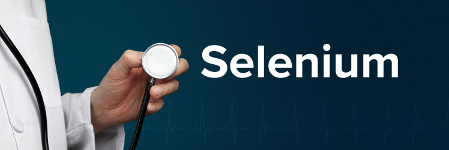
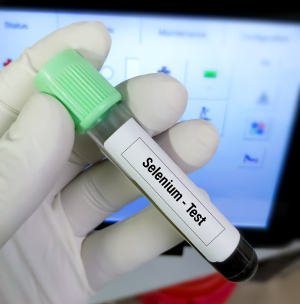 Over the past decades, numerous studies have linked low selenium levels in the blood to cardiovascular disease, cancer, increased risk of infection, thyroid disorders, and several other diseases. Due to the widespread problems with selenium deficiency, supplementation with this nutrient is of potential value to our general health. In a review article that is published in Oxidative Medicine and Cellular Longevity, the authors look at selenium’s role in connection with a host of different diseases and metabolic disorders.
Over the past decades, numerous studies have linked low selenium levels in the blood to cardiovascular disease, cancer, increased risk of infection, thyroid disorders, and several other diseases. Due to the widespread problems with selenium deficiency, supplementation with this nutrient is of potential value to our general health. In a review article that is published in Oxidative Medicine and Cellular Longevity, the authors look at selenium’s role in connection with a host of different diseases and metabolic disorders. A substantial number of people suffer from Hashimoto’s disease, a condition that causes hypothyroidism (slow metabolism), extreme fatigue, cold sensitivity, weight gain, and numerous other symptoms because the cells lack energy. Quite a few people suffering from this disease receive treatment, but the results are often unsatisfactory, and most people have not been given the correct diagnosis or do not receive proper help.
A substantial number of people suffer from Hashimoto’s disease, a condition that causes hypothyroidism (slow metabolism), extreme fatigue, cold sensitivity, weight gain, and numerous other symptoms because the cells lack energy. Quite a few people suffering from this disease receive treatment, but the results are often unsatisfactory, and most people have not been given the correct diagnosis or do not receive proper help.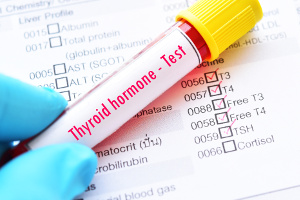
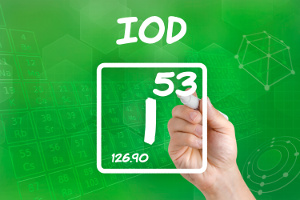 We humans are exposed to a host of toxic fluoride compounds from food packaging, cookie sheets, rain clothes, impregnation agents, tap water, toothpaste etc. Effective July 1., 2020, cardboard, parchment paper, and cookie sheets that contain fluoride compounds are banned in Denmark. Fluoride poisoning increases the risk of various thyroid disorders, breast cancer, kidney diseases, ADHD, and fetal damage. At the same time, it increases the need for iodine. In fact, the symptoms of fluoride poisoning are often the same as the those seen with iodine deficiency. Read more about how to avoid fluoride compounds in the environment and how to make sure to get enough iodine.
We humans are exposed to a host of toxic fluoride compounds from food packaging, cookie sheets, rain clothes, impregnation agents, tap water, toothpaste etc. Effective July 1., 2020, cardboard, parchment paper, and cookie sheets that contain fluoride compounds are banned in Denmark. Fluoride poisoning increases the risk of various thyroid disorders, breast cancer, kidney diseases, ADHD, and fetal damage. At the same time, it increases the need for iodine. In fact, the symptoms of fluoride poisoning are often the same as the those seen with iodine deficiency. Read more about how to avoid fluoride compounds in the environment and how to make sure to get enough iodine. PFAS (per- and polyfluoroalkyl substances) are found in building materials, textiles, kitchen utensils, foam from fire extinguishers, and cosmetics. The compounds have even been found in certain foods. The massive PFAS pollution may impair the body’s ability to utilize iodine, especially by affecting thyroid hormones that are essential for our metabolism, according to an article published in Molecular and Cellular Endocrinology. Daily exposure to PFAS may also increase the risk of fetal damage, poor liver function, breast cancer, and other diseases. It also appears that PFAS poisoning increases the need for iodine.
PFAS (per- and polyfluoroalkyl substances) are found in building materials, textiles, kitchen utensils, foam from fire extinguishers, and cosmetics. The compounds have even been found in certain foods. The massive PFAS pollution may impair the body’s ability to utilize iodine, especially by affecting thyroid hormones that are essential for our metabolism, according to an article published in Molecular and Cellular Endocrinology. Daily exposure to PFAS may also increase the risk of fetal damage, poor liver function, breast cancer, and other diseases. It also appears that PFAS poisoning increases the need for iodine.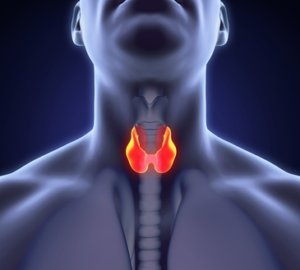 An estimated 500,000 Danes suffer from some kind of thyroid disorder, the most common of which is Hashimoto’s disease, which slows down your metabolism. The formation and activation of thyroid hormones depend on iodine and selenium, and it is essential that the two nutrients are properly balanced. Having too little or too much iodine increases your risk of Hashimoto’s disease, and the same is the case with selenium, a nutrient that many people lack.
An estimated 500,000 Danes suffer from some kind of thyroid disorder, the most common of which is Hashimoto’s disease, which slows down your metabolism. The formation and activation of thyroid hormones depend on iodine and selenium, and it is essential that the two nutrients are properly balanced. Having too little or too much iodine increases your risk of Hashimoto’s disease, and the same is the case with selenium, a nutrient that many people lack. "After about one week of taking the Q10 supplement I could feel a huge difference," says 23-year old Alan Piccini, who has been suffering from extreme fatigue and muscle aches ever since he was a child.
"After about one week of taking the Q10 supplement I could feel a huge difference," says 23-year old Alan Piccini, who has been suffering from extreme fatigue and muscle aches ever since he was a child. “Taking capsules with co-enzyme Q10 has freed me of the severe side effects of my cholesterol lowering medicine,” Mrs Franken explains.
“Taking capsules with co-enzyme Q10 has freed me of the severe side effects of my cholesterol lowering medicine,” Mrs Franken explains.